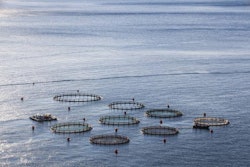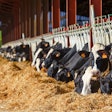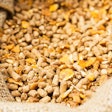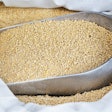Enables Alberta to lead development of enhanced and sustainable feed
Results Driven Agriculture Research (RDAR) has announced a $110,291 investment in CBS Bio Platforms to enable Alberta to lead development of enhanced and sustainable feed. Industry-leading outcomes from this research project will strengthen Alberta’s reputation as a center for world-class, livestock production.
RDAR funding will drive research led by CBS Bio Platforms, a leading international feed technology company headquartered in Calgary, to develop novel processes that release previously inaccessible plant components and makes them usable in poultry and swine diets.
“The impacts of success for this project will be far-reaching for swine and poultry producers,” says Rob Patterson, CBS Bio Platforms technical director. “Protein is a major variable expense for producers, and CBS is developing novel technologies, such as feed-derived prebiotics, to be used to maximize feed performance and replace antibiotic growth promoters.”
Positive research results will deliver producer benefits at the farm gate by reducing the feed cost and increasing quality. By improving feed’s overall economics and sustainability, this research will unlock hard-to-capture value in feed inputs. This research will broaden the toolbox of beneficial and affordable plant protein sources, diversify the options for alternatives to antimicrobial use and help meet the new market legislation and consumer preferences for poultry and swine products.
“Innovation in animal feed represents a great area of opportunity for Alberta’s economy and to help our livestock producers maximize benefits and increase profitability,” says Nate Horner, minister of agriculture, forestry and rural economic development. “This industry-directed investment from RDAR towards made-in-Alberta solutions will accelerate our progress to capture this potential–supporting a strong future that expands the boundaries of Alberta’s agriculture success.”
Positive research outcomes will also help reduce agriculture’s environmental footprint.
“This research will help our industry emerge as a leader in shaping and adopting the feed of the future, bringing efficiencies and other advantages that keep more dollars at the farm gate and strengthen the overall competitiveness of the sector,” says Clinton Dobson, RDAR director of research.
The key to the project’s success will be leveraging the expertise and resources of CBS Bio Platforms to uncover a new pathway to unlocking plant protein potential. The project builds on a wealth of previous CBS feed technology research, particularly with enzyme technology.
“We’ve learned a lot about extracting more value and delivering unique advantages out of feed ingredients,” says Patterson. “By using enzyme technology, CBS breaks down the plant’s fibrous structures and releases components traditionally more difficult to access. This new project will take this approach to a new level of precision and power by capturing the protein fraction as well as functional carbohydrate fractions to create new high-value product streams.”
Quick Facts:
- Increased demand for protein and the need to feed growing global populations will significantly impact climate, water consumption, land use and biodiversity. By using novel, plant-derived substances (PDS), producers will gain efficiencies and productivity gains.
- This research will help producers meet the demand for alternative protein sources (ex. hemp, flax meal, lentils and fava beans) of plant origin.
- This research will broaden the available knowledge of novel PDS, and the use of PDSs as antibiotic alternatives.
This project is funded by RDAR, the government of Canada and the government of Alberta through the Canadian Agricultural Partnership.
















